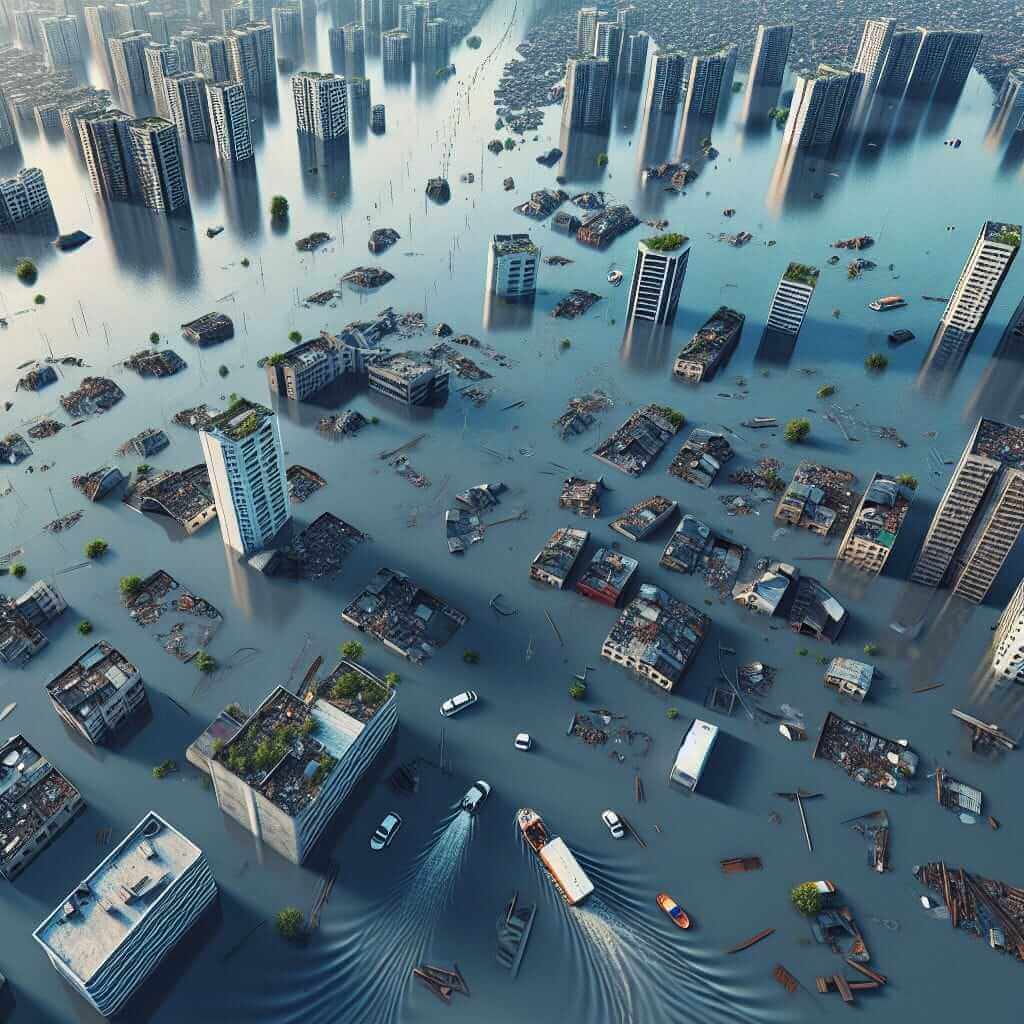The impact of climate change on water resources is a pressing global concern and a frequently appearing theme in IELTS Writing Task 2. This topic requires you to demonstrate an understanding of complex environmental issues and their far-reaching consequences.
Here are some potential IELTS Writing Task 2 questions related to this topic:
- Many parts of the world are experiencing increased droughts and floods due to climate change. What are the effects of these extreme weather events on people’s lives, and what measures can be taken to mitigate these effects?
- Climate change is predicted to significantly impact global water resources. Discuss the potential consequences of these changes and suggest solutions to ensure water security in the future.
- Some argue that industrialized nations are more responsible for climate change and, therefore, should bear the primary responsibility for addressing its impact on water resources. To what extent do you agree or disagree?
Sample Essay: Question 1
Let’s elaborate on the first question to develop a model essay:
Many parts of the world are experiencing increased droughts and floods due to climate change. What are the effects of these extreme weather events on people’s lives, and what measures can be taken to mitigate these effects?
Essay Analysis
This question presents a two-part challenge. First, you need to analyze the effects of droughts and floods on people’s lives. Then, you must propose measures to mitigate these adverse effects. Remember to maintain a clear and logical structure throughout your essay.
Model Essay
Climate change is no longer a distant threat but a stark reality affecting communities worldwide. One of the most concerning manifestations of this crisis is the increasing frequency and intensity of extreme weather events, particularly droughts and floods, which have devastating impacts on people’s lives.
Droughts, characterized by prolonged periods of abnormally low rainfall, wreak havoc on agriculture, leading to crop failures and livestock losses. This directly threatens food security, pushing vulnerable populations into poverty and malnutrition. Furthermore, droughts deplete water sources essential for drinking, sanitation, and hygiene, increasing the risk of waterborne diseases and exacerbating existing health inequalities.
Conversely, floods, often triggered by heavy rainfall and rising sea levels, cause widespread displacement and damage to infrastructure. Homes, businesses, and critical facilities like hospitals and schools are often submerged, resulting in significant economic losses and disruptions to essential services. Floods also contaminate water sources, leading to outbreaks of diseases and posing long-term health risks.

Addressing these challenges requires a multi-pronged approach. Investing in climate-resilient agriculture, such as drought-resistant crops and efficient irrigation systems, can help mitigate the impact of droughts on food security. Implementing early warning systems for floods and droughts can provide crucial time for preparedness and evacuation, reducing the loss of life and property. Additionally, sustainable land management practices, including afforestation and reforestation, can help regulate water cycles and mitigate the severity of both droughts and floods.
Furthermore, international cooperation is paramount to tackling this global challenge. Developed nations, bearing a historical responsibility for climate change, must support developing countries in adapting to these changing weather patterns and building resilience against extreme events. This includes financial assistance, technology transfer, and capacity building initiatives.
In conclusion, the intensifying cycle of droughts and floods driven by climate change poses severe threats to human lives and livelihoods. It is imperative that we adopt a proactive and multifaceted approach, encompassing sustainable practices, technological innovation, and global collaboration, to mitigate these challenges and secure a safer and more sustainable future for all.
(Word count: 330 words)
Writing Tips
- Use clear topic sentences: Each paragraph should begin with a clear topic sentence that outlines the main point.
- Provide specific examples: Illustrate your arguments with relevant examples from current events or scientific studies.
- Use linking words and phrases: Ensure coherence and flow between sentences and paragraphs using appropriate linking words like ‘furthermore,’ ‘conversely,’ ‘in addition,’ etc.
- Maintain a formal tone: Use academic language and avoid contractions or colloquialisms.
Vocabulary Focus
- Mitigate (verb) /ˈmɪt.ɪ.ɡeɪt/: To make something less severe, serious, or painful.
- Exacerbate (verb) /ɪɡˈzæs.ə.beɪt/: To make a problem, bad situation, or negative feeling worse.
- Wreak havoc (verb phrase): To cause a great amount of disorder or damage.
- Paramount (adjective) /ˈpær.ə.maʊnt/: Of the greatest importance; essential.
- Resilience (noun) /rɪˈzɪl.i.əns/: The capacity to recover quickly from difficulties; toughness.
Conclusion
The impact of climate change on water resources is a complex and multifaceted issue that requires a nuanced understanding and thoughtful analysis. By practicing your writing skills with these sample questions and model essays, you can improve your ability to articulate your thoughts effectively and achieve a high band score in the IELTS Writing Task 2.